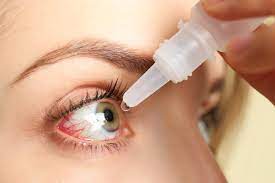Given the recent recalls of eye drops, it is a suitable moment to consider the safety of using eye drops. The FDA has released several “consumer tips” that advise against using some types of eye drops, including those labelled as homoeopathic. Below, we provide a comprehensive list of items that should be avoided, along with the reasons for doing so.
The issue with numerous eye drops is that they can cause problems.
The immune system effectively defends our bodies against infection, however it may not always respond to eye infections. In scientific terminology, the eyes are considered to have “immune privilege.” The immune system generally relies on the eyes to maintain their own well-being, resulting in minimal inflammation in this area, which is a part of the body’s defence against infection. Besides the eyes, other body organs that have immune privilege include the brain, testes, placenta, and foetus.
It is believed that immunological privilege is beneficial for our eyes since it decreases the likelihood of inflammation. However, on the other hand, if our eyes become infected, it is more challenging to combat the illness. Individuals have passed away or experienced eyesight loss due to infections caused by tainted eye drops.
Because our eyes are easily infected, it is crucial to avoid putting anything unnecessary into them. That is the reason why the FDA is advising individuals to avoid using eye drops that do not have a recognised therapeutic advantage. Every type of eye drops has some level of risk, thus it is important to ensure that the possible advantages are greater than the potential concerns. Avoid using these kinds of eye drops.
Eye drops with homoeopathic
Although you might associate “homoeopathy” with home remedies or natural medicine, it is not the same. Homoeopathy is a particular medical idea that has been discredited for a long time, originating from a period when the understanding of disease-causing germs was not yet known. It was considered a milder option compared to practices such as bloodletting and other aggressive treatments that were common during that era.
The FDA laws were formulated with a provision that permitted the coexistence of homoeopathic “drugs” with genuine pharmaceuticals, despite the fact that they lack FDA approval and have not been substantiated as safe or efficacious. The FDA and FTC have been cautiously attempting to regulate items that they can claim are hazardous or sold in a misleading manner. Currently, homoeopathic products are permitted to exist, but are required to have clear labelling stating: “Claims are based on traditional homoeopathic practice and not supported by accepted medical evidence.”
The FDA’s recommendation is straightforward: “Avoid using ophthalmic [eye] products that are labelled as homoeopathic, as these products should not be sold.”
Homoeopathic products can be identified by the presence of the term “homoeopathic” (often found on the front of the packaging) and by the inclusion of substances stated as dilutions (indicated by a number followed by X, C, or CK) rather than specific measurable amounts such as milligrammes. “Cineraria maritima HPUS 6X” is an instance of a homoeopathic ingredient dilution. The FDA provides more information on identifying and preventing the use of homoeopathic goods.
Eye drops that purport to heal severe diseases
If your doctor recommends eye drops for a severe ailment such as cataracts or glaucoma, you can have confidence in them. However, if you are trying to address or manage something on your own, it is not advisable to rely on non-prescription eye drops that claim to treat these problems.
The FDA, once again, states that there are no authorised non-prescription eye drops for “severe eye conditions like glaucoma, cataracts, retinopathy, or macular degeneration.”
Eye drops containing MSM (methylsulfonylmethane)
Methylsulfonylmethane, also known as MSM, has been researched for its possible health advantages. It has potential anti-inflammatory properties and is permitted for use as an ingredient in food or supplements.
But if you observe it in eye drops, avoid it. The FDA states that MSM drops are unapproved medications and are being unlawfully promoted in the United States. There are no ophthalmic medications available in the market that incorporate MSM as an active component.
Silver-containing eye drops
Silver sulphate and argentum are two terms used to refer to pharmaceutical components that may contain silver (the metallic element). Over time, silver can lead to a change in the colour of the whites of your eyes, making them appear grey.
Something comparable occurs in the skin of individuals who consume substantial amounts of silver (such as colloidal silver) over an extended period of time. In that situation, there is a term for the condition: argyria.
Like the eye drops described earlier, there is no known therapeutic advantage to using eye drops that contain silver. Additionally, there is a risk of your eyes turning grey and the possibility of introducing impurities if the eye drops are not prepared and stored correctly.
The FDA recommends that individuals examine their eye drops for the specified chemicals, such as silver, MSM, or any homoeopathic substances, and also verify if the drops are included in any recent recall or warning notices. Additional information from the FDA can be found here.
























